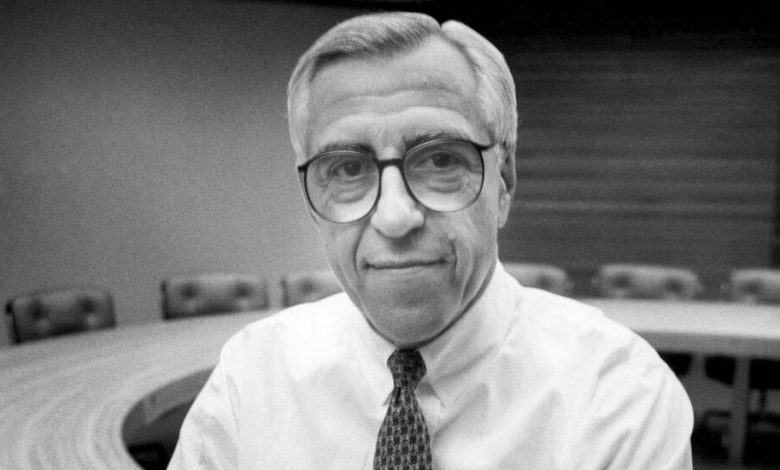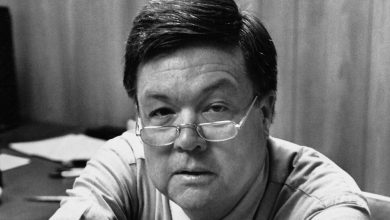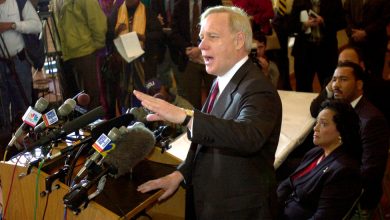Frank Popoff, Who Sought to Lead a Friendlier Dow Chemical, Dies at 88

Frank Popoff, a chief executive and chairman who tried to make Dow Chemical more conciliatory toward regulators and environmentalists in the late 1980s and ’90s, and who prodded the chemical industry to adopt safer practices, died on Feb. 25 at his home in Midland, Mich., where Dow is based. He was 88.
A spokesman for the company said the cause was cancer.
When the Bulgarian-born Mr. Popoff was named Dow’s president and chief executive in 1987, the company had begun trying to shed its image as a pugnacious chemical giant that had manufactured napalm and the defoliant Agent Orange for the U.S. military during the Vietnam War; released toxic waste, like dioxins, into the Tittabawassee River from its plant in Midland; and fought the Environmental Protection Agency to prevent flyover inspections of its emissions.
An estimated $50-million advertising campaign that had begun two years before Mr. Popoff rose to the top used the slogan “Dow lets you do great things.” It was intended to change public perceptions of Dow, promoting an image of it as a nicer corporation, underlining its charitable giving and humanitarian uses of its products.
“I think we have a fair amount of work to do in terms of the way we are viewed,” Mr. Popoff told The New York Times in 1987, shortly before succeeding Paul F. Oreffice as chief executive. “We know we’ll never change Ralph Nader’s mind. But Dow is at peace with itself, and we want our people to feel good about the company, too.”
The company was best known then for manufacturing chemicals, including chlorine, as well as using chemicals in making plastics, pharmaceuticals and supermarket goods like Saran Wrap, Fantastik cleaning liquid and Ziploc bags.
Regulators and environmentalists were heavily focused on chemicals at the time. In 1991, Mr. Popoff and another Dow executive, David Buzzelli, set up a panel of outside environmental policy advisers — among them Lee Thomas, a former E.P.A. administrator — who scrutinized Dow’s operations and were able to obtain confidential information. A current version of that panel remains in place at Dow.



